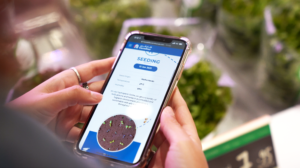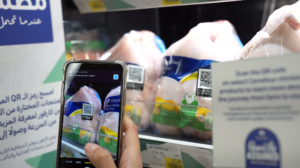Hani Weiss
We are standing at the dawn of a trust revolution in the retail sector, in which food traceability becomes a global trend and consumers obtain visibility on the entire food journey. This transformation is compounded by the ever-increasing importance of health, safety and well-being concerns in society – accelerated further by the COVID-19 pandemic. As food traceability transitions to the forefront of the retail sector, without a doubt, there are immense challenges for retailers and suppliers in delivering effective tracing solutions. However, as we saw with the e-commerce transformation, those who adopt new technology and innovate early will significantly increase their potential market leadership in the near future. The question is, how do we implement the changes needed while also supporting our network of supply chain partners, especially in overcoming their hesitation to adopt the new technology and to assist in capturing all the required data accurately and quickly? As retail leaders, we must work with suppliers in overcoming this hesitation to share data publicly and emphasise the advantages of doing so.
More than a high-tech paper trail

At present, the lack of full end-to-end traceability across the entire food supply chain is often due to outdated technology and a reluctance to share data. While blockchain technology is new, it has quickly become an obvious choice to replace obsolete systems, using decentralised open-source ledgers stored on a public database that provide verifiable end-to-end visibility. However, transferring processes and procedures from old systems to new ones is inherently difficult to plan and manage, as it requires commitment at every step of the supply chain. This means necessary data must not only be captured and logged in almost real-time, but also crucially, shared.
A problem shared is a problem halved

Such a solution sits well within a retailer’s transformation journey to revolutionise business operations to better its performance and satisfy consumers. The rising importance of transparency and traceability in the retail sector creates a remarkable business opportunity for retailers to seek partnerships with technology experts and suppliers to benefit from brand differentiation while building robust customer trust and loyalty. Food traceability has already been adopted internationally by leading names in the sector and actively helps ensure consumer satisfaction while reducing reputational damage and potential financial losses.
Looking ahead to the near future, food traceability will become a primary consumer demand, and they will consciously gravitate towards those retail leaders delivering visibility on the entire food journey. We believe committing to food traceability in 2021 is of great importance to both retail and consumer goods leaders. Now is the time for greater collaboration and more strategic partnerships across every link in the value chain, striving to make a positive difference in the lives of our valued customers.
This blog was written and contributed by:
Chief Executive Officer
Majid Al Futtaim Retail
(Operator of the Carrefour franchise in the Middle East, Africa and Asia)

